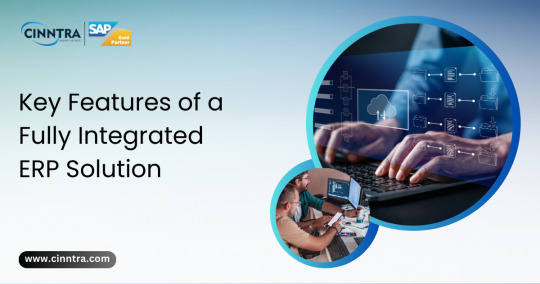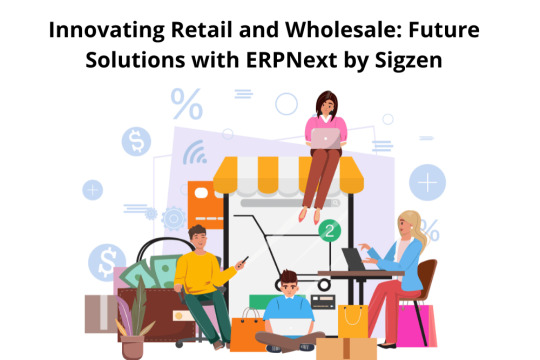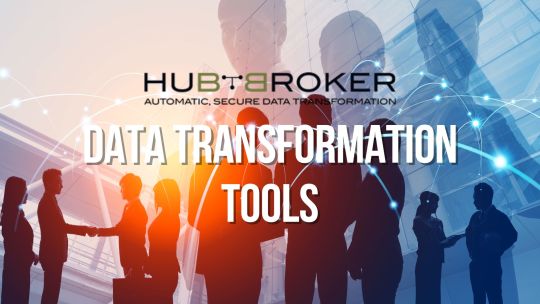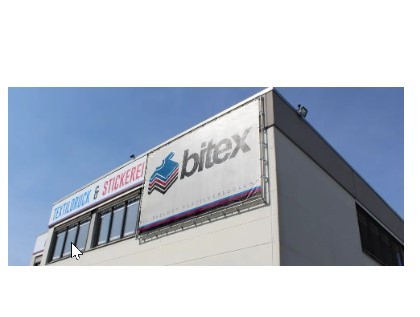#integrated ERP ecommerce
Explore tagged Tumblr posts
Text
Inwizards an odoo development company offers all kinds of odoo development services including SAAS, POS, Migrations, mobile app, marketplaces, customizations, and multi-channel integrations.
#Odoo Development Company#Odoo Development#odoo development services#Odoo Development and Customization Services#Odoo Migration Services#Odoo Application Development#Odoo Ecommerce Development#Odoo ERP Solutions#Odoo Customization#Odoo Integration#Odoo Platform
2 notes
·
View notes
Text
Shopify integration with Dynamics 365 Business Central
Integrating Shopify with Dynamics 365 Business Central is a powerful way to streamline eCommerce operations and enhance overall business efficiency. By connecting these two platforms, businesses can sync orders, inventory, and customer data seamlessly, reducing manual entry and the potential for errors. When an order is placed on Shopify, the information can be automatically pushed to Business Central, where it can be processed, invoiced, and tracked. Likewise, inventory levels in Business Central can be updated in real-time on Shopify, ensuring customers are only shown products that are in stock. This integration allows businesses to save time, improve order accuracy, and provide a better experience for their customers.
Beyond improving operational efficiency, this integration also enhances financial management and reporting. Sales data from Shopify can be transferred directly into Business Central, allowing finance teams to generate real-time financial reports and manage cash flow effectively. The integration helps ensure that all sales transactions, including taxes and shipping, are accurately recorded in Business Central's general ledger. This seamless flow of data between Shopify and Dynamics 365 Business Central empowers businesses to scale, automate processes, and make data-driven decisions without worrying about discrepancies between their eCommerce platform and back-office systems.
Click here to know more: https://www.intelegain.com/shopify-integration-with-dynamics-365-business-central/
#Shopify integration#Dynamics 365 Business Central#eCommerce integration#Shopify and Business Central sync#Automating Shopify orders#Inventory management integration#Financial management with Shopify#Real-time inventory updates#Business Central financial reports#Shopify ERP integration#Order processing automation#Shopify Dynamics 365 integration benefits#Business efficiency with Dynamics 365#Syncing Shopify with ERP#Shopify Business Central automation
0 notes
Text

Discover key features of a fully integrated ERP solution. Enhance ERP, Enterprise Resource Planning, and business processes with a unified system
#sap business one#erp software#sap b1 implementation#sap b1 erp#erp integration#erp with ecommerce integration
0 notes
Text

Odoo Omni-Channel Management: Revolutionize Your Business Operations
Delivering a unified customer experience across multiple channels is essential for modern businesses. With Odoo Omni-Channel Management, you can effortlessly integrate your online stores, physical outlets, and marketplace operations into one seamless system.
Odoo helps streamline sales with eCommerce and POS modules, ensuring real-time inventory synchronization. Marketplace integrations allow you to centralize orders from platforms like eBay and Shopify. Odoo’s CRM consolidates customer interactions, enabling better support and personalized marketing. Additionally, payment gateways, loyalty programs, and refunds are easily managed, creating a smooth customer journey.
Leverage Odoo’s powerful analytics tools to optimize sales strategies, enhance operational efficiency, and drive revenue growth. By automating repetitive processes and unifying operations, Odoo eliminates complexity and ensures your business is ready for future challenges. Get started today and transform your multi-channel operations with ease.
#Odoo ERP#Omni-Channel Management#Business Integration#eCommerce Solutions#Inventory Automation#Payment Solutions
0 notes
Text
SAP ECC stands as one of the top ERP systems for enterprises, managing and digitizing business operations efficiently. Meanwhile, Magento empowers businesses to grow their online store with its versatile e-commerce capabilities. Bridging these two platforms is not just advantageous but often a critical necessity for organizations aiming to synchronize their operations seamlessly. At APPSeCONNECT, we specialize in facilitating the Magento SAP ECC integration, ensuring that ERP system and eCommerce platform work harmoniously together to automate your business process.
#magento integration#magento#sap#sap integration#erp#erp integration#Magento sap ecc integration#ecommerce
0 notes
Text
Best Web Design Company In Dubai

Webcastle Technologies one of the best award winning web development companies in Dubai offers web and app designing services along with the latest marketing strategy.
#web design company dubai#web design companies in dubai#web design and development dubai#web design agency dubai#web development agency dubai#web development agency in dubai#ecommerce website design dubai#best seo company in dubai#erp software in dubai#erp software dubai#mobile application development dubai#mobile app development company in dubai#google adwords agency dubai#digital marketing companies in dubai#API Integration dubai#social media marketing companies in dubai
0 notes
Text
Integs Cloud Expands To The US: Empowering Businesses With Cloud ERP Solutions

Integs Cloud Technologies LLC, a leading cloud solutions and services provider, is thrilled to announce its expansion into the US market! Our new US entity is located in Aldie, VA. This exciting move underscores our commitment to delivering best-in-class cloud solutions to businesses across North America.
The US expansion strengthens Integs Cloud’s ability to serve a wider audience, offering a comprehensive suite of services designed to empower businesses in various industries. Whether you’re in manufacturing, IT services, retail, or professional services, Integs Cloud can help you unlock the full potential of cloud technology.
How Integs Cloud Can Help You Grow Your Business?
We offer a comprehensive suite of cloud solutions designed to address the unique needs of businesses in various industries. Here’s how we can unlock your growth potential:
Streamline Operations & Gain Insights: Our expert Oracle NetSuite implementation team helps you optimize workflows, manage inventory effectively, and gain valuable data insights to make informed decisions.
Seamless Data Flow & Automation: Using Celigo Integrator.io, we seamlessly connect NetSuite with your existing critical applications, automating processes and boosting data accuracy. This translates to a significant efficiency gain!
Effortless E-commerce Experience: Our in-depth knowledge of Shopify empowers you to create a frictionless omni-channel experience for your customers, ultimately leading to increased sales and customer satisfaction.
The Benefits Of Choosing Integs Cloud In The US
Why choose Integs Cloud as your trusted cloud partner? We offer several compelling advantages:
Localized Expertise, Global Reach: Your Cloud Solution Partner with a Worldview – Integs Cloud combines its understanding of the US market with its global experience to deliver tailored solutions.
Proven Track Record: We boast a proven track record of successful cloud software implementations, ensuring a smooth transition for your US business.
Seamless US Support & Implementation: Integs Cloud Makes Cloud Software Adoption Easy – We offer dedicated support and implementation services;
Leverage the Cloud Advantage: Competitive Solutions from Integs Cloud – Benefit from cost-effective and secure cloud solutions optimized for the US market.
Unlocking US Growth Potential: How Integs Cloud Empowers Your Business – We understand your unique goals and challenges to help you achieve sustainable growth in the US market
Let’s Get You Cloud-Ready: Take The First Step To Growth With Integs Cloud
Integs Cloud is your one-stop shop for all your cloud solution needs. We’re excited to partner with US businesses and help them experience the transformative power of cloud technology. Integs Cloud is here to be your trusted partner in your cloud journey. Contact us today to schedule a consultation and discuss how our cloud solutions can help you streamline operations, drive growth, and achieve sustainable success!
Integs Cloud’s expansion to the US marks a significant milestone in empowering businesses with cutting-edge Cloud ERP solutions. Stay updated by reading the latest news about this exciting expansion and learn how Integs Cloud can benefit your business.
#CloudERP#NetSuite#Celigo#Shopify#Ecommerce#NorthAmerica#USA#cloudtechnology#empoweringbusinesses#OracleNetSuite#iPaaS#Zoho#Integration#Automation#API#SaaS#Enterprise#Technology#ERP#Software#IntegsCloud#BusinessAutomation#BusinessExpansion#CloudSolutions#DigitalTransformation#TechSolutions#BusinessGrowth#CloudComputing#DigitalInnovation#ITConsulting
0 notes
Text
Top Tools and Plugins for Streamlining Shopware to Shopify Migration
Migrating your e-commerce store from Shopware to Shopify can feel like a monumental task. It involves transferring data, ensuring compatibility, and maintaining your store’s functionality and aesthetics. However, with the right tools and plugins, this transition can be smooth and efficient.
Why Migrate from Shopware to Shopify?
Before diving into the tools, let’s understand why many businesses are making the switch from Shopware to Shopify.
1. Ease of Use: Shopify offers a user-friendly interface that simplifies store management, making it accessible even for those without technical expertise.
2. Customization: Shopify provides a plethora of themes and customization options, allowing you to tailor your store to your brand’s needs.
3. Scalability: As your business grows, Shopify’s scalable solutions can grow with you, offering advanced features and integrations.
4. Support and Community: Shopify has extensive support resources and a large community of developers and users who can provide assistance and advice.
Now, let’s delve into the top tools and plugins that can help you streamline the migration process.
1. Cart2Cart
Cart2Cart is a popular automated migration service that simplifies the process of transferring your store from Shopware to Shopify. It supports a wide range of data including products, customers, orders, and more.
Key Features
Automated Migration: Transfers data automatically, reducing the risk of manual errors.
24/7 Support: Offers round-the-clock support to assist with any issues during migration.
Free Demo: Allows you to test the migration process before committing.
How It Works
1. Setup: Sign up on Cart2Cart and set up your source (Shopware) and target (Shopify) carts.
2. Data Mapping: Map the data fields between Shopware and Shopify to ensure accurate data transfer.
3. Migration: Initiate the migration process and monitor its progress. Cart2Cart handles the rest.
2. LitExtension
LitExtension is another powerful tool designed for seamless e-commerce migrations. It supports comprehensive data migration and is known for its reliability and ease of use.
Key Features
No Downtime: Ensures that your store remains operational during the migration process.
Data Security: Uses advanced security measures to protect your data.
Custom Migration: Offers customization options to tailor the migration process to your specific needs.
How It Works
1. Register: Create an account on LitExtension and select your source and target platforms.
2. Configure: Configure the migration settings, including data to be transferred and mapping.
3. Migrate: Start the migration and track its progress through the user-friendly dashboard.
3. Matrixify (Formerly Excelify)
Matrixify is a Shopify app that facilitates data import and export using Excel files. It’s particularly useful for migrating complex data sets from Shopware to Shopify.
Key Features
Bulk Data Handling: Handles large volumes of data efficiently.
Flexibility: Supports a wide range of data types and formats.
Scheduled Imports: Allows you to schedule data imports and updates.
How It Works
1. Prepare Data: Export your data from Shopware into Excel files.
2. Upload: Upload the Excel files to Matrixify on Shopify.
3. Import: Use Matrixify to import the data into your Shopify store, mapping fields as necessary.
4. Shopify’s Import Store App
Shopify’s Import Store app is a native solution for importing data from various platforms, including Shopware. It’s an excellent starting point for smaller migrations.
Key Features
Native Integration: Seamlessly integrates with Shopify.
Simple Setup: Easy to use with a straightforward interface.
Free: Provided by Shopify at no additional cost.
How It Works
1. Install: Install the Import Store app from the Shopify App Store.
2. Import Data: Follow the prompts to import data from your Shopware store.
3. Verify and Adjust: Review the imported data and make any necessary adjustments.
5. Third-Party Developers
Hiring third-party developers or agencies can provide a customized migration solution tailored to your specific needs. This is especially useful for complex migrations involving custom functionalities.
Key Features
Customization: Tailored solutions to fit your unique requirements.
Expertise: Access to experienced developers who understand both platforms.
Support: Ongoing support and maintenance during and after migration.
How It Works
1. Select a Provider: Choose a reputable developer or agency with experience in Shopware to Shopify migrations.
2. Discuss Requirements: Discuss your specific migration needs and goals.
3. Migration Process: Work with the developer to plan and execute the migration, ensuring all data and functionalities are correctly transferred.
6. CSV Import/Export
For those with technical skills, manually exporting and importing data using CSV files can be an effective method. This approach offers full control over the data transfer process.
Key Features
Control: Full control over the data being transferred.
Cost-Effective: Minimal costs involved.
Customizable: Flexible to meet specific needs.
How It Works
1. Export Data: Export your Shopware data to CSV files.
2. Prepare Files: Prepare and format the CSV files to match Shopify’s requirements.
3. Import Data: Use Shopify’s import tools to upload and map the CSV files.
Tips for a Smooth Migration
1. Plan Ahead
Before starting the migration, plan each step carefully. Identify the data to be migrated, set a timeline, and allocate resources. A detailed plan will help avoid unexpected issues and ensure a smooth transition.
2. Backup Your Data
Always create a backup of your Shopware store data before starting the migration. This ensures you have a safety net in case anything goes wrong during the process.
3. Test the Migration
Utilize the free demo migrations offered by tools like Cart2Cart and LitExtension. Testing helps identify potential issues and allows you to fine-tune the process before the final migration.
4. Monitor and Verify
After the migration, thoroughly check your Shopify store to ensure all data has been accurately transferred. Verify products, customer data, orders, and any other critical information.
5. Update URLs
Ensure that all URLs are updated to avoid broken links. Use 301 redirects to maintain SEO rankings and ensure a smooth user experience.
6. Train Your Team
Familiarize your team with the new Shopify platform. Provide training and resources to help them understand the new system and its features.
Know more: BigCommerce vs. Shopify
Conclusion
Migrating from Shopware to Shopify can seem daunting, but with the right tools and plugins, the process becomes manageable and efficient. Whether you opt for automated migration services like Cart2Cart and LitExtension or prefer a more hands-on approach with tools like Matrixify, the key is to choose the solution that best fits your business needs. By planning, testing thoroughly, and leveraging the right tools, you can ensure a successful migration and take advantage of Shopify’s powerful e-commerce platform. In this journey, OyeCommere is here to help you and make this transition smooth.
Remember, each migration is unique, so take the time to assess your specific requirements and choose the tools and methods that will best support your business goals. Happy migrating!
0 notes
Text
The Future of Retail & Wholesale: Innovate with ERPNext Solutions by Sigzen
In the dynamic landscape of retail and wholesale, businesses are constantly seeking innovative solutions to stay ahead. Enter ERPNext, a comprehensive enterprise resource planning (ERP) platform designed to revolutionize operations in both retail and wholesale sectors. With its user-friendly interface and powerful features, ERPNext offers a seamless solution for managing inventory, optimizing…

View On WordPress
#Cloud ERP#Customer Experience#Data Analytics#Ecommerce Integration#ERPNext Solutions#Future of Retail#Retail Technology#Retail Trends#Supply Chain Optimization#Wholesale Innovation
0 notes
Text
Streamlining Success with Custom Integrations, 3PL Integration, and E-Commerce Order Management
#e commerce order management#ecommerce integration platform#e commerce solutions services#ecommerce fulfillment center#e commerce inventory#3pl integration#ecommerce#erp solutions uae#Connect3PL
0 notes
Text
Unleash the Power of B2B Ecommerce for P21 with B2Sell
Looking for a top-tier B2B ecommerce solution that seamlessly integrates with your Epicor P21 ERP? Look no further than B2Sell! We empower businesses to establish a robust online sales channel specifically designed for B2B transactions, leveraging the power of P21 ERP integration.
Here's what sets B2Sell apart:
Effortless B2B Ecommerce for P21: B2Sell seamlessly integrates with your existing P21 ERP system, creating a unified platform for managing your online store. No need for complex data migration or separate systems!
Real-Time Inventory & Live Pricing:
Gone are the days of outdated inventory and inconsistent pricing. B2Sell offers real-time synchronization with P21, ensuring your customers always see accurate product availability and their specific negotiated pricing.
Deep P21 ERP Integration:
Our deep integration goes beyond basic data transfer. B2Sell leverages the full potential of P21, streamlining processes like order processing, customer management, and inventory control.
Mobile-First Websites:
Today's B2B buyers demand a smooth mobile experience. B2Sell delivers beautiful, responsive B2B ecommerce websites optimized for smartphones and tablets, allowing your customers to conveniently place orders on the go.
B2Sell: The Perfect Choice for P21 Users
B2Sell is the ideal solution for businesses using P21 who want to:
Expand their reach and tap into the growing B2B online market.
Eliminate manual data entry and streamline operations for increased efficiency.
Provide superior customer experience with real-time information and mobile-friendly access.
Don't settle for a generic B2B ecommerce platform. Choose B2Sell, the top ecommerce solution specifically designed for P21 users with deep integration and powerful features.
Contact B2Sell today and unlock the full potential of your B2B ecommerce for P21!
0 notes
Text
0 notes
Text

Piyovi cloud-based multi-carrier shipping software designed to streamline and optimize the shipping process for businesses of all sizes. This innovative solution offers a comprehensive platform that integrates seamlessly with various carriers, allowing users to compare shipping rates, track shipments, and manage their entire logistics operation efficiently. https://piyovi.com
#shipping software#shipping solutions#logistics software#multi carrier shipping software#tms#cloud shipping#shipping system#supply chain#ecommerce#erp systems#cloudshippingsoftware#ERP Integrated Shipping Software#address validation software#tracking software
0 notes
Text
Here is how you can Choose the Right Tools for Data Transformation

For those who are running a business, data management is an art. Choosing the right data transformation tools is a critical decision that can significantly impact the quality and efficiency of your processes. This informative guide explores vital considerations and insights to help you navigate the landscape and make informed decisions.
Understanding Data Quality:
The foundation of any data transformation lies in ensuring data quality. Before probing into the selection of tools, assessing the quality of your existing datasets is crucial. Look for tools that offer robust data quality features, including validation checks, anomaly detection, and cleansing capabilities. A device that addresses data quality concerns ensures the accuracy and reliability of your transformed data.
Validation:
An essential aspect of data transformation is validating the input and output data sets. Effective validation mechanisms within a tool help identify and rectify errors, ensuring that the transformed data adheres to standards that have already been laid out to set the course. Look for tools with comprehensive validation features to guarantee the integrity of your data throughout the transformation process.
Combining Data Sets and Aggregation:
Many data transformation tasks involve merging or combining dissimilar data sets to derive meaningful insights. Choose tools that offer seamless integration capabilities, enabling you to combine data from various sources effortlessly. Additionally, look for tools with robust aggregation functionalities that help summarize and analyze data at different granularities to meet specific business requirements.
Compatibility with Existing Systems:
Ensuring compatibility with your existing systems should be a priority for a smooth integration process. Evaluate data transformation tools that seamlessly integrate with your current infrastructure, databases, and analytics platforms. A software tool that aligns with your existing ecosystem minimizes disruptions, streamlines the adoption process, and optimizes your overall data transformation workflow. Trust use when we tell you that optimizing the data so that it fits in well with the new version of the software tool that you plan on using can be a task, hence use the one with possible integration.
Scalability for Future Growth:
As your organization grows, so does the volume and complexity of your data. Opt for tools that offer scalability, allowing you to handle increasing data loads and evolving business needs. A scalable data transformation tool ensures that your processes remain efficient and effective even as your data requirements expand. It should be able to get in data silos and integrate them together so as to make meaningful insights that can help in the business growth.
Making Informed Decisions:
Choosing the right tools is a strategic decision that influences the success of your data initiatives. By prioritizing data quality, validation capabilities, the ability to combine and aggregate data, compatibility with existing systems, and scalability, you empower your organization to harness the full potential of your data. As you begin to select data transformation tools, keep these considerations in mind. By making informed decisions at this stage, you lay the groundwork for a robust and agile data transformation process that aligns seamlessly with your business objectives. With the right tools and partners like HubBroker, your organization can unlock the true value of its data assets.
#datamanagement#datasecurity#data transformation#automation#erpsoftware#erp solution#ecommerce integration#invoice software development bd#supplychain#healthcare
1 note
·
View note
Text
Integration for e-commerce platforms: The BoltBee advantage
In the fast-moving world of digital commerce, the integration of different systems and platforms is a cornerstone for success. BoltBee, a leader in the e-commerce sector, understands this need and offers a solution that streamlines the data exchange process and ensures seamless operations for your business.

Simplified data exchange with BoltBee
One of the key challenges in e-commerce is managing the flow of data between different systems. BoltBee addresses this problem by offering a solution that makes data exchange almost automatic. Your approach to Integration for e-commerce platforms focuses on simplicity and efficiency. With BoltBee, the integration process into your data environment is accelerated by using standardized, state-of-the-art components. These components are based on a modular principle that allows for easy customization and scalability.
BoltBee: Your partner in e-commerce communication
Communication within the eCommerce environment is crucial. BoltBee shines in this area by offering an extensible software solution that offers a high level of flexibility. This flexibility is important not only for routine interface projects, but also for meeting the individual requirements of your company. Whether for typical e-commerce communications or specialized interface projects, BoltBee's adaptable platform ensures that all your needs are met precisely and easily.
Tailored solutions for every business need
Recognizing that every business has unique requirements, BoltBee offers tailored solutions to meet these individual needs. Their modular software design allows for expansion and customization, allowing your eCommerce platform to grow and evolve with your business. This means BoltBee can efficiently meet your needs, whether they are standard e-commerce operations or specific, tailored solutions.visit ;omnichannel commerce solutions
State-of-the-art technology for seamless integration

Conclusion:
In summary, integration for e-commerce platforms is a crucial aspect that can determine the success of an online business. BoltBee stands out in this area by offering a solution that simplifies data exchange, offers flexible communication options and is built on state-of-the-art technology. When you choose Boltbee.de, you are not just choosing a service provider, but a partner who is committed to providing real value to your business and ensuring that your e-commerce operations run smoothly and efficiently.
Blog Source URL :-
https://srtgmbh1.blogspot.com/2023/11/integration-for-e-commerce-platforms.html
0 notes
Text
There’s no doubt that Amazon is the world’s biggest online marketplace where businesses from various industries sell a wide range of products. With Amazon Seller Central, businesses can easily handle every aspect of their Amazon store and listings.
However, solely handling things on the front end is not sufficient, which is why most companies also use a backend ERP system like SAP to manage their orders, inventory, and other eCommerce operations. As a result, there is also the need to sync Amazon with the ERP to ensure that both systems have accurate and up-to-date data. That is where businesses require reliable and seamless Amazon and SAP S/4HANA integration.
Read on for a quick recap of the webinar to learn more about integrating Amazon and SAP.
#Amazon#amazon integration#amazonsellercentral#ERP#SAP#SAPIntegration#SAPS4HANA#ecommerce#integration#ipaas#automation#b2b
0 notes